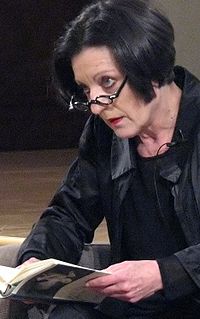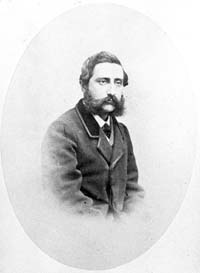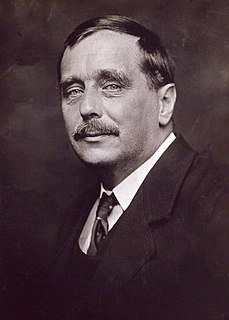
The Nobel Prize in Physics is a yearly award given by the Royal Swedish Academy of Sciences for those who have made the most outstanding contributions for humankind in the field of physics. It is one of the five Nobel Prizes established by the will of Alfred Nobel in 1895 and awarded since 1901; the others being the Nobel Prize in Chemistry, Nobel Prize in Literature, Nobel Peace Prize, and Nobel Prize in Physiology or Medicine.

Paul Johann Ludwig von Heyse was a distinguished German writer and translator. A member of two important literary societies, the Tunnel über der Spree in Berlin and Die Krokodile in Munich, he wrote novels, poetry, 177 short stories, and about sixty dramas. The sum of Heyse's many and varied productions made him a dominant figure among German men of letters. He was awarded the Nobel Prize for Literature in 1910 "as a tribute to the consummate artistry, permeated with idealism, which he has demonstrated during his long productive career as a lyric poet, dramatist, novelist and writer of world-renowned short stories." Wirsen, one of the Nobel judges, said that "Germany has not had a greater literary genius since Goethe." Heyse is the fifth oldest laureate in literature, after Sully Prudhomme, Theodor Mommsen, Alice Munro and Jaroslav Seifert.
French literature is, generally speaking, literature written in the French language, particularly by citizens of France; it may also refer to literature written by people living in France who speak traditional languages of France other than French. Literature written in French language, by citizens of other nations such as Belgium, Switzerland, Canada, Senegal, Algeria, Morocco, etc. is referred to as Francophone literature. As of 2006, French writers have been awarded more Nobel Prizes in Literature than novelists, poets and essayists of any other country. France itself ranks first in the list of Nobel Prizes in literature by country.
This article presents lists of literary events and publications in 1901.

Elfriede Jelinek is an Austrian playwright and novelist. She was awarded the Nobel Prize in Literature in 2004 for her "musical flow of voices and counter-voices in novels and plays that, with extraordinary linguistic zeal, reveal the absurdity of society's clichés and their subjugating power".
Italian poetry is a category of Italian literature.

Herta Müller is a Romanian-born German novelist, poet, essayist and recipient of the 2009 Nobel Prize in Literature. Born in Nițchidorf, Timiș County in Romania, her native language is German. Since the early 1990s she has been internationally established, and her works have been translated into more than twenty languages.
Prud'homme or Prudhomme, also spelt Preudhomme, Preudomme and Proudhomme, may refer to:
Nationality words link to articles with information on the nation's poetry or literature.
Nationality words link to articles with information on the nation's poetry or literature.
Events from the year 1907 in France.
Events from the year 1839 in France.

The Nobel Prize in Chemistry is awarded annually by the Royal Swedish Academy of Sciences to scientists in the various fields of chemistry. It is one of the five Nobel Prizes established by the will of Alfred Nobel in 1895, awarded for outstanding contributions in chemistry, physics, literature, peace, and physiology or medicine. This award is administered by the Nobel Foundation, and awarded by Royal Swedish Academy of Sciences on proposal of the Nobel Committee for Chemistry which consists of five members elected by Academy. The award is presented in Stockholm at an annual ceremony on December 10, the anniversary of Nobel's death.









